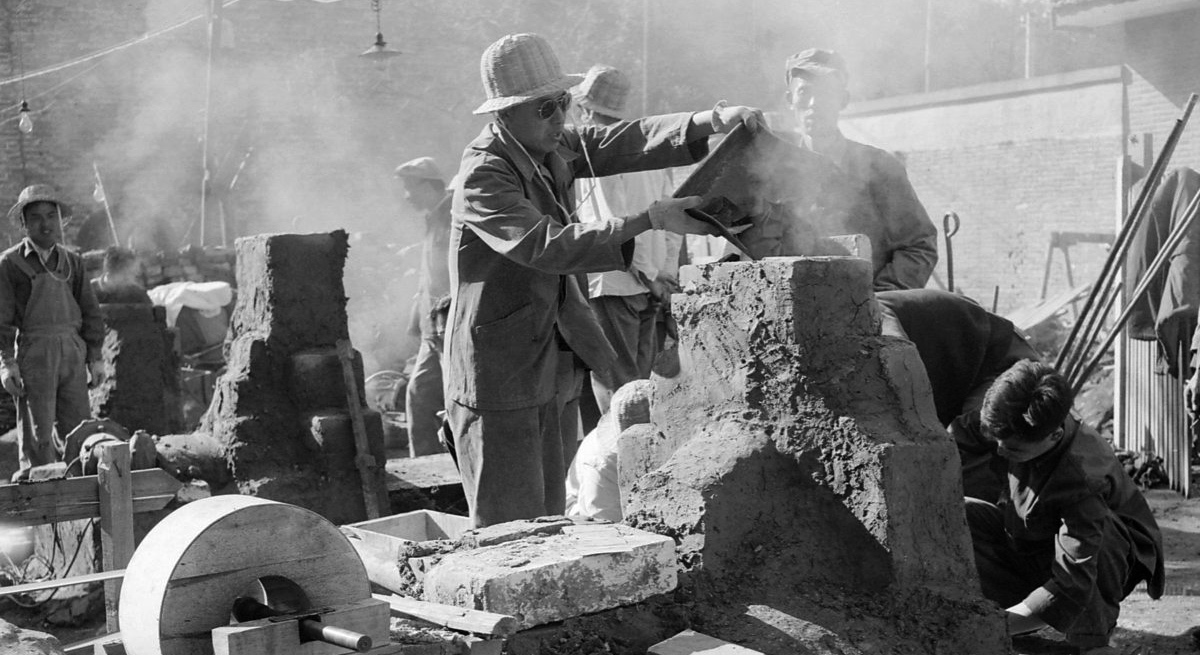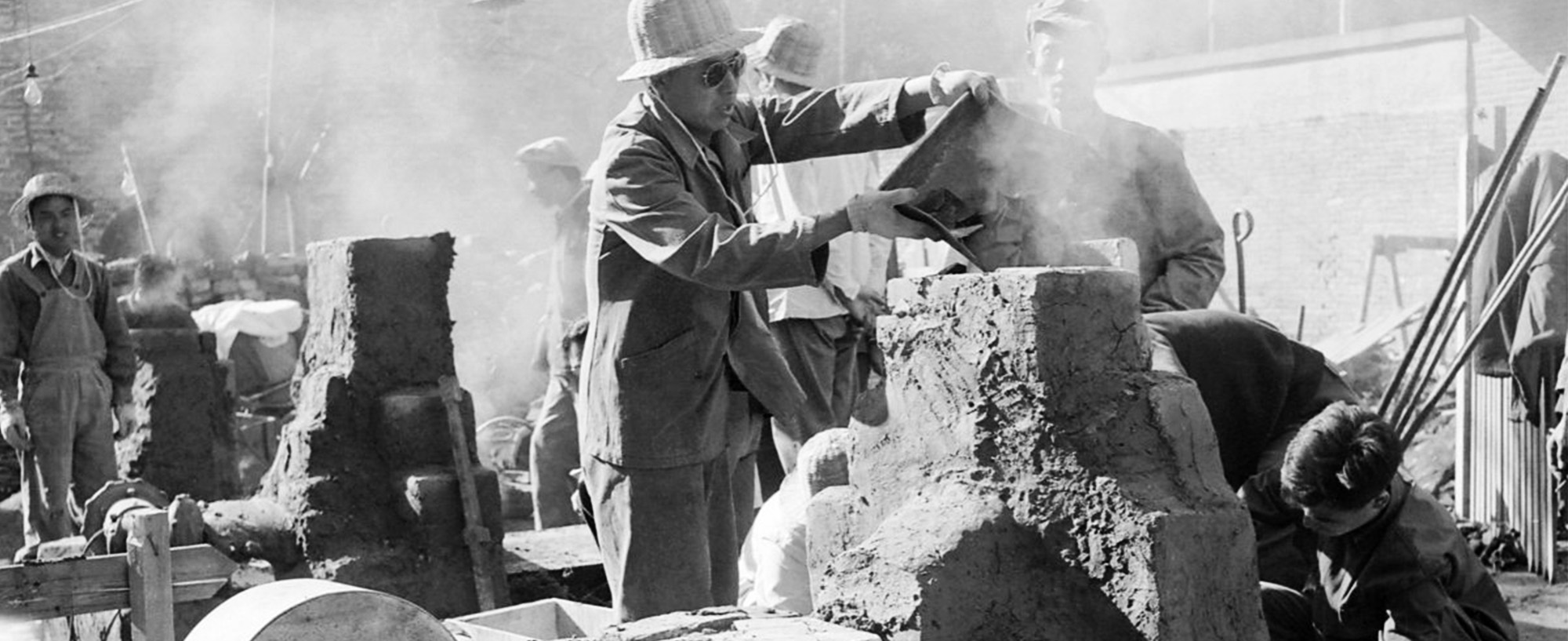


In 1958, Mao launched the Great Leap Forward, a campaign that aimed to further transform China from its agrarian roots to a socialist economy through rapid industrialization and collectivization. By monopolizing agriculture, the government was able to buy grain cheaply and sell it for a much higher price in order to finance industrialization.
Mao believed existing collectives should be merged into even larger People's Communes. By the end of 1958, approximately 25,000 state-operated communes were created, with an average of 5,000 households each. Private plots were abolished and communal kitchens were introduced. Farmers who attempted to escape the communes were punished with struggle sessions, a form of public humiliation during which the victim was verbally and physically abused.
Many communities were assigned to the production of a single commodity: steel. 'Backyard furnaces' were constructed at every commune and urban neighborhood to help increase steel production. People used every type of fuel they could to power these furnaces, from coal to the wood of coffins. Where iron ore was unavailable, they melted household objects, including pots and pans, and even bicycles. The result was not steel, but pig iron, which was largely unusable. Workers at factories, schools, hospitals and farms were pulled from their jobs to assist in the production of steel.